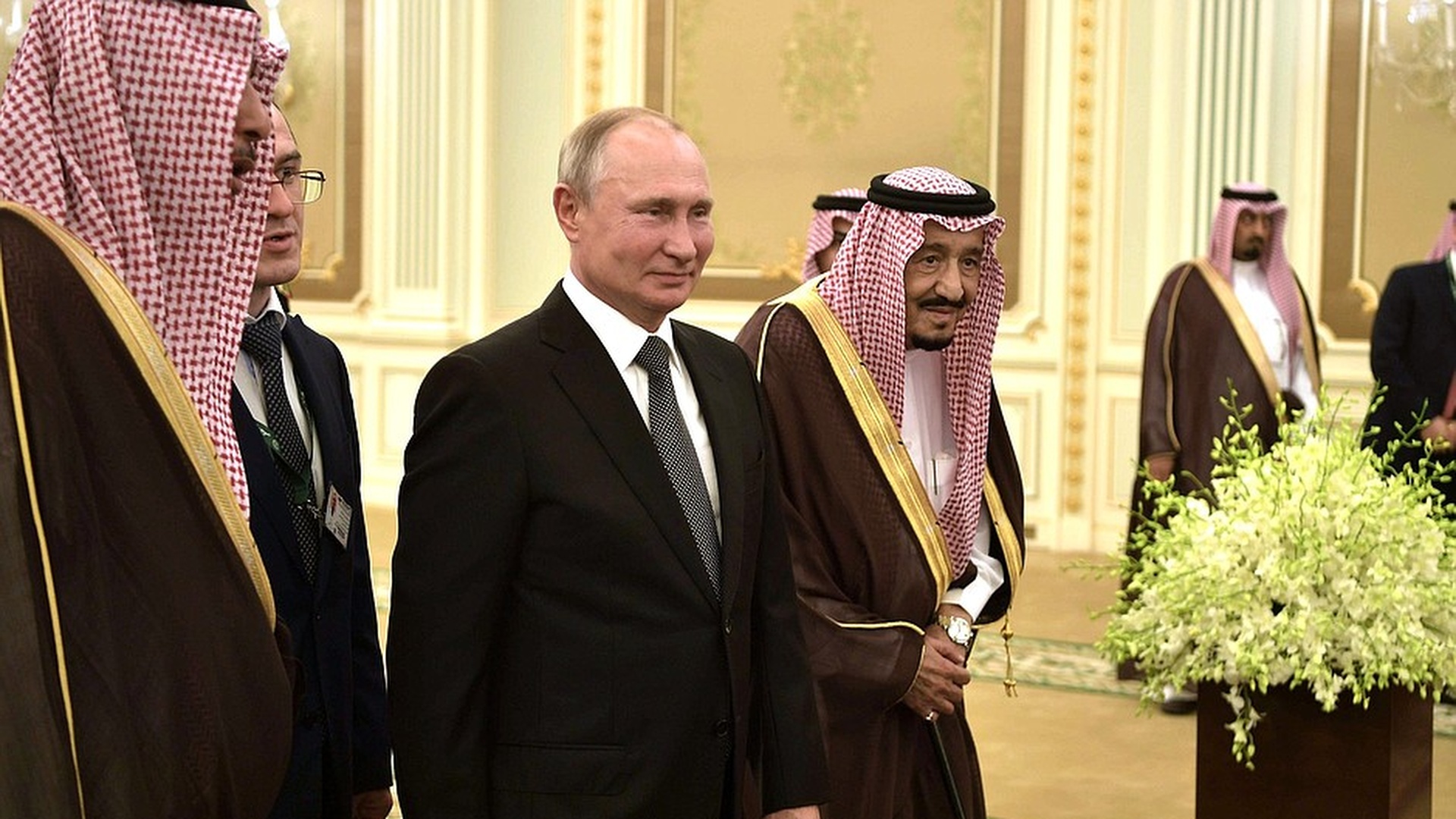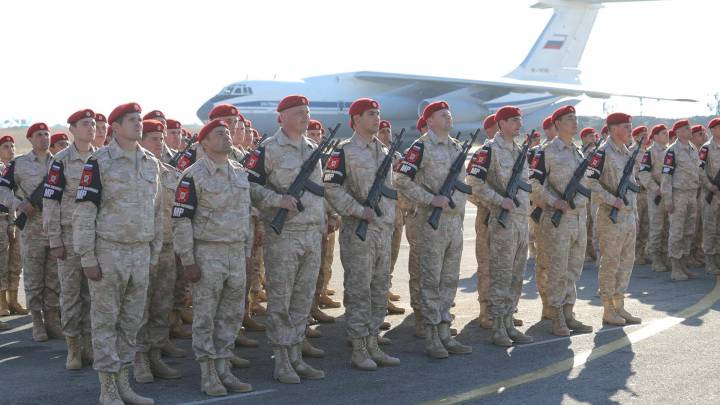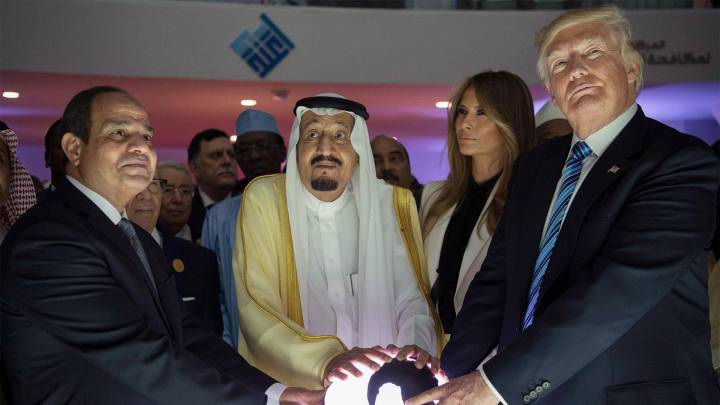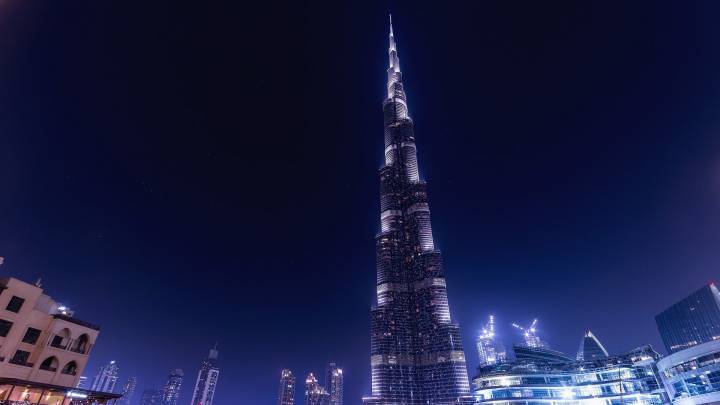Putin’s visit to Riyadh and Abu Dhabi in mid-October demonstrated the full magnitude of Russia’s prestige in the region and cemented Moscow’s position as a leading power in the Middle East. But what is the Kremlin’s realistic clout in the Gulf?
Back in 2015, few Western analysts thought that Russia could have any meaningful impact on the Middle East and North Africa, as it seemed to possess neither diplomatic nor military capacities to challenge US dominance in the region. Since the end of the Cold War, the West has underestimated Russia. Former US president Barack Obama, for example, described Russia as no more than a “regional power”. Although facing many limits, Moscow in many ways caught Westerners by surprise. Four years after Russia’s intervention in Syria, when Moscow was able to turn the tide of war, Russia has become one of the key power brokers, establishing close connections with all regional players.
Frequent visits of senior Gulf states officials to Moscow in the last few years, and close personal ties between Vladimir Putin with Gulf state monarchs, especially those in Saudi Arabia, the UAE and Qatar, have significantly improved their relations through closer political and commercial cooperation, going beyond regulation of oil prices, indicating a new chapter in their relations.
Since the end of 2016, Russia has gone from OPEC’s main competitor to a close ally, playing a leading role in stabilising oil prices. The historic deal in the spring of 2018 between Russia and Saudi Arabia to actively manage oil markets for potentially the next 20 years came as a cherry on top of the cake of ever closer Saudi-Russian bilateral relations.
Speaking with zenith, Aron Lund from the Century Foundation is convinced that besides boosting trade ties, the Russian government is certainly interested to capitalize on the political influence of the Saudis, Emiratis, as well as the Qataris. Moreover, Russia has a very strong interest in seeking to avert risks of war with Iran, with which Moscow has built a close, albeit not uncomplicated relationship over the years. Concerns over the United States’ reliability as an ally, which surfaced under Obama and have been greatly reinforced under Trump, as well as raising tensions with Iran and rifts with Qatar and Turkey are the main reasons, according to Lund, that pushed Saudi Arabia and the UAE to seek good relations with Russia in order to diversify international contacts and prevent Russia to become too close with their main rivals.
Constructive relations with all, permanent alliances with no one
However, Putin’s visit comes at a time when the Saudi-UAE alliance is facing turbulences, as both countries arm rival factions in Yemen and pursue contrasting policies toward Iran and Syria. Divergent agendas of two Arab states may pose a challenge to Moscow as it must be careful not to align too close with any of the two states.
According to Anna Borshchevskaya, a senior fellow at the Washington Institute for the Near East Policy (WINEP), Putin has been able to balance good relations with all conflicting actors in the region, in part because they have come to perceive Moscow as more reliable than Washington. She told us that “if history is any indicator, Putin will continue playing this card” and “ultimately what Putin does is to manage the conflict rather than genuinely resolve it, while all sides grow more dependent on Moscow.”
Sergey Sukhankin, a researcher at the Jamestown Foundation, noted that Russia has profoundly upgraded its diplomatic skills in comparison with both the Soviet and the early post-Soviet periods. Speaking with zenith, he said he is not sure if “from a strategic point of view, Moscow is interested in the elimination of existing differences between the UAE and the Saudis.” He said that Russia is interested in bilateral talks – not in talks with a block of countries and “the more difficulties the UAE and the SA have in bilateral ties, the more opportunities Russia has.”
Nevertheless, Lund observes that the UAE, Saudi Arabia and Russia all share some basics in their view of the Middle East: All have a preference for authoritarian stability, they are not fond of messy democratic experiments, and they are deeply suspicious of Islamist movements like the Muslim Brotherhood. For Lund, Abu Dhabi and Moscow often seem to be two birds of a feather in their perception of regional affairs, with the important exception of how they relate to Iran. “In general, Moscow does not want to be involved in regional conflicts if it can avoid it. The model is: constructive relations with all, permanent alliances with no one,” he told zenith.
Will Russia defuse tensions in the Gulf?
Russia faces an even greater challenge when dealing with Iran, the archfoe of the Gulf monarchies. As one of very few countries in the international community which has good relations with all key players in the region, many wonder whether Russia may become a prime peace broker between Arabs and Iran in order to defuse high tensions in the Gulf.
Dr. Stephen J. Blank, an expert on Russian foreign policy and Senior Fellow at the American Foreign Policy Council (AFPC) told us that Russia will only broker relations between Iran and other Gulf states if both sides ask for that and even then it may refuse, as its cardinal principle is to be available for contact for everyone without taking sides in their internecine quarrels.
As for Lund, he thinks that where Moscow can, it will surely seek to contribute to a reduction of Iranian-Arab tensions – and indeed of Israeli-Iranian and perhaps even American-Iranian tensions – but much of this is outside of Russia’s control. While Putin presents Russia as a unique actor in the region and one that can serve as a neutral mediator that is able to talk to all sides, the Gulf still tilts towards the US, Borshchevskaya notes. And even though Putin doesn’t lack ambition, he does lack resources.
Sukhankin expresses some doubts about whether the Russia-Iran alliance is as durable as it seems on the surface. He sees Iran as an independent player with agendas of its own, which is clearly visible in Syria. Teheran’s ties with China give Iran additional leverage and Sukhankin forecasts that difficulties in bilateral relations between Russia and Iran might start taking a more visible shape once the process of reconstruction of Syria is launched in full.
It is also not likely to expect that Russia will be able to achieve and convince Gulf partners to actively participate in its collective security plans in the Persian Gulf, which emphasise the need for universal consultation of relevant stakeholders and calls for a greater involvement of the UN Security Council in regional security issues.
However, this idea has already been proposed by Iran in the past and these days is again initiated by both Russia and China is. Sukhankin thinks that such a step is likely to trigger a wave of discontent in the West, which will be yet another negative factor. “The other critical piece of this proposal is that it puts the US in a more junior role and it’s hard to image the US agreeing to that”, Borshchevskaya adds.
The US still holds the prime seat in the region
So even though Putin’s Middle East sway is growing, Russia is not able to displace America’s powerful role in the Persian Gulf or in the regional security system.
Despite recent Putin’s visit that culminated in the signing of bilateral deals with Saudi Arabia (worth more than $2 billion) and with the UAE (worth $1.4 billion), these figures are modest in comparison with those reported during Donald Trump’s visit, when some $300 billion worth of deals were announced. Also, the Gulf hosts substantial US military forces: The US Navy’s 5th Fleet is headquartered in Bahrain, while the Al-Udeid airbase in Qatar hosts the forward headquarters of US Central Command (CENTCOM), as well as the Expeditionary Air Group of the UK’s RAF and the 379th Air Expeditionary Wing of the US Air Force.
The Russians seem well aware of this, and according to Lund, their engagement in the region is likely best understood as a quest to build influence where possible and otherwise to further Russian interests concerning trade, arms exports, conflict resolution, and oil price controls. Nevertheless, although the US still holds the role of prime power in the region it will have to get used to an ever-greater presence of their rivals from Russia. Thus, expect more visits from Russia in the future.




